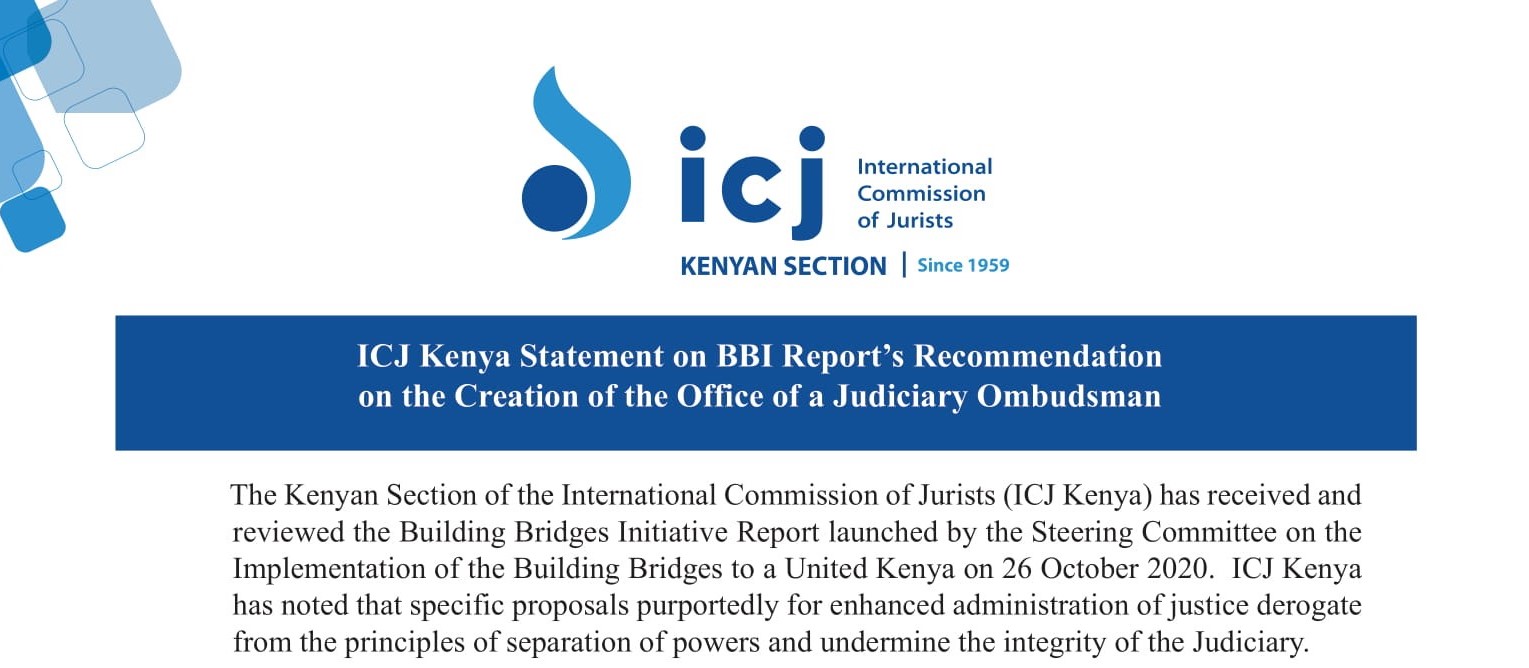NAIROBI, Kenya, November 5- The Kenyan Section of the International Commission of Jurists (ICJ Kenya) says the appointment of Judiciary ombudsman should be vested in a selection panel of stakeholders in the justice sector who should include representatives from various institutions.
The institutions should include The Judicial Service Commission, The Attorney General, Director of Public Prosecutions, Law Society of Kenya, Kenya National Commission on Human Rights, Public Service Commission, and Council of Governors.
ICJ Kenya chairman Mr Kelvin Mogeni said in a statement on Thursday that they have received and reviewed the Building Bridges Initiative (BBI) Report launched by the Steering Committee on the Implementation of the Building Bridges to a United Kenya on October 26, 2020.
“ICJ Kenya has noted that specific proposals purportedly for enhanced administration of justice derogate from the principles of separation of powers and undermine the integrity of the Judiciary,” he said in the statement.
BBI proposes radical changes to the Constitution of Kenya with the creation of the Office of the Judiciary Ombudsman.
ICJ Kenya said the Judiciary already has an Ombudsman under the office of the Chief Justice, an administrative office headed by the Deputy Chief Justice.
The BBI report proposes a fully-fledged office with specific terms of reference outlined in the Draft Constitutional Amendment Bill.
According to the recommendations of the BBI report, this new Office of the Ombudsman will, among other things, “receive and conduct inquiries into complaints against Judges, magistrates, registrars, judicial officers and staff of the Judiciary.”
It will also “engage with the public on the role and performance of the Judiciary and improve the transparency of the court and accountability of the courts.”
“We acknowledge that the Judiciary should be accountable, in a transparent manner, to the sovereign will of the people of Kenya. However, we emphasize the need to ensure the principle of separation of powers as espoused in the Bangalore Principles of Judicial Conduct and Latimer House guidelines,” the statement said.
The statement added that these principles and guidelines underscore that judicial independence is a central tenet in advancing the rule of law.
“Each arm of government must exercise responsibility and restraint in the exercise of power within its constitutional sphere so that it does not infringe on the legitimate powers vested on the other arms of government.”
The interaction between the three arms of government should be based on the principle of cooperative governance.”
The statement added that the name of the person nominated by the Selection Panel should then be forwarded for vetting by the National Assembly and submitted to the President for formal appointment.
The Judiciary Ombudsman, he added, should annually submit its report to the National Council on the administration and justice.
Mr. Mogeni called for open and constructive dialogue on any proposals regarding reforms in the Judiciary, which must strengthen the Judiciary.










